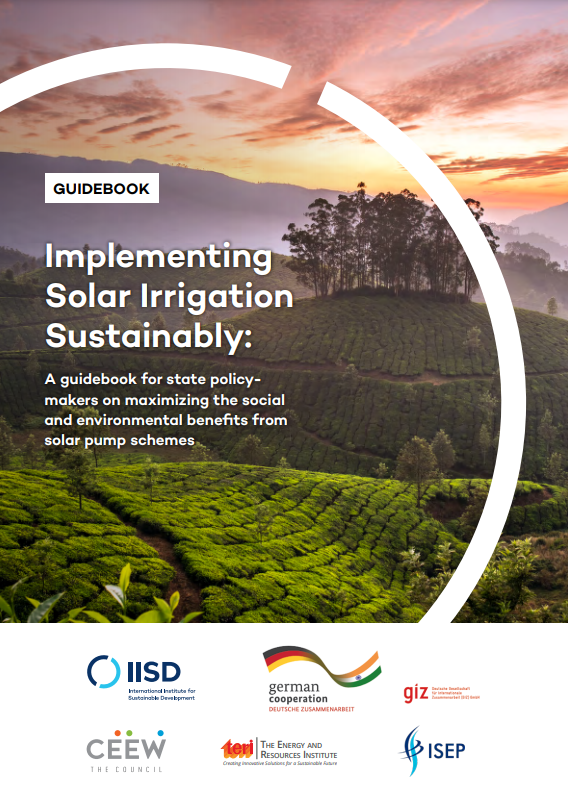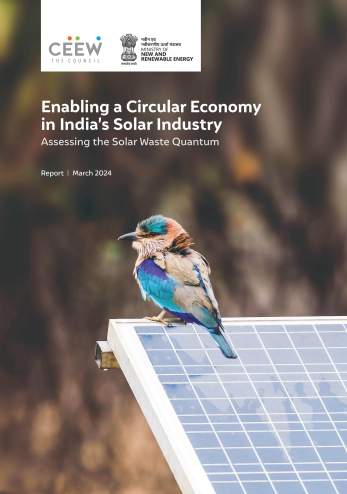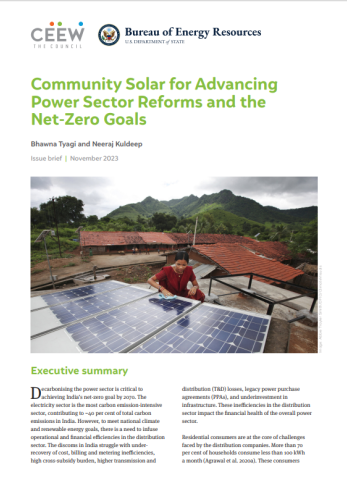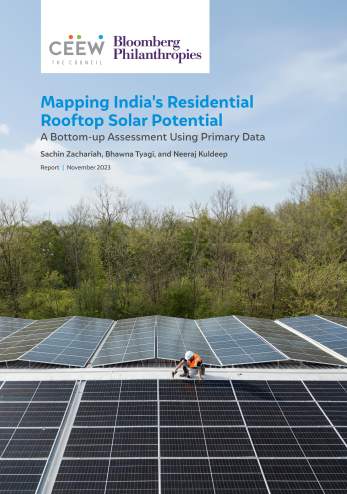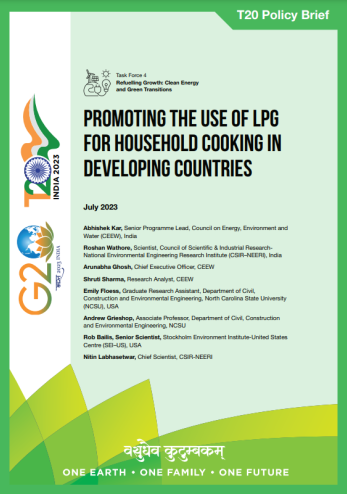Other Publications
Implementing Solar Irrigation Sustainably
A Guidebook for State Policy-Makers on Maximising the Social and Environmental Benefits from Solar Pump Schemes
Siddharth Goel, Rashmi Murali, Anas Rahman, Prajnashish Swain, Balasubramanian Viswanathan, Shalu Agrawal, Christopher Beaton, Mini Govindan, Abhishek Jain, and Debajit Palit
December 2021 | Energy Transitions
Suggested citation: Goe, Siddharth, Rashmi Murali, Anas Rahman, Prajnashish Swain, Balasubramanian Viswanathan, Shalu Agrawal, Christopher Beaton, Mini Govindan, Abhishek Jain, and Debajit Palit. 2021. Implementing Solar Irrigation Sustainably: A guidebook for state policy-makers on maximizing the social and environmental benefits from solar pump schemes. International Institute for Sustainable Development.
Overview
In 2019, India launched the PM-KUSUM scheme — a major initiative to promote solar-powered irrigation, thereby boosting farmer well-being and transitioning to clean energy. This guidebook has been developed in cooperation with the Ministry for New and Renewable Energy (MNRE) and provides concrete recommendations on how state officials can sustainably deploy standalone solar pumps. On social outcomes, the guidebook looks at how schemes can maximise benefits for low-income farmers. Environmentally, it examines how schemes can minimise risks of over-withdrawal of groundwater.
Key Findings
- Cost-effective and reliable irrigation can significantly improve farmer incomes and well-being. Moving away from subsidised grid electricity can relieve financial pressure on utilities. Solar power helps India shift to clean energy, and reduce air pollution and greenhouse gas emissions.
- Solar pumps need to be deployed in a sustainable manner to maximise the benefits for farmers and avoid negative environmental impacts.
- Focused on standalone and grid-connected pumps, the guidebook provides practical suggestions for state policy-makers and implementing agencies with illustrative examples, drawing on a combination of secondary and primary research.
- The guidebook provides practical and concise recommendations by drawing on practitioner experience through consultations with state officials and other stakeholders, as well as synthesising previous research on state experiences with solar irrigation and the water–energy–food (WEF) nexus. This is focused into guidance and illustrative examples of good practice over five main focus areas.
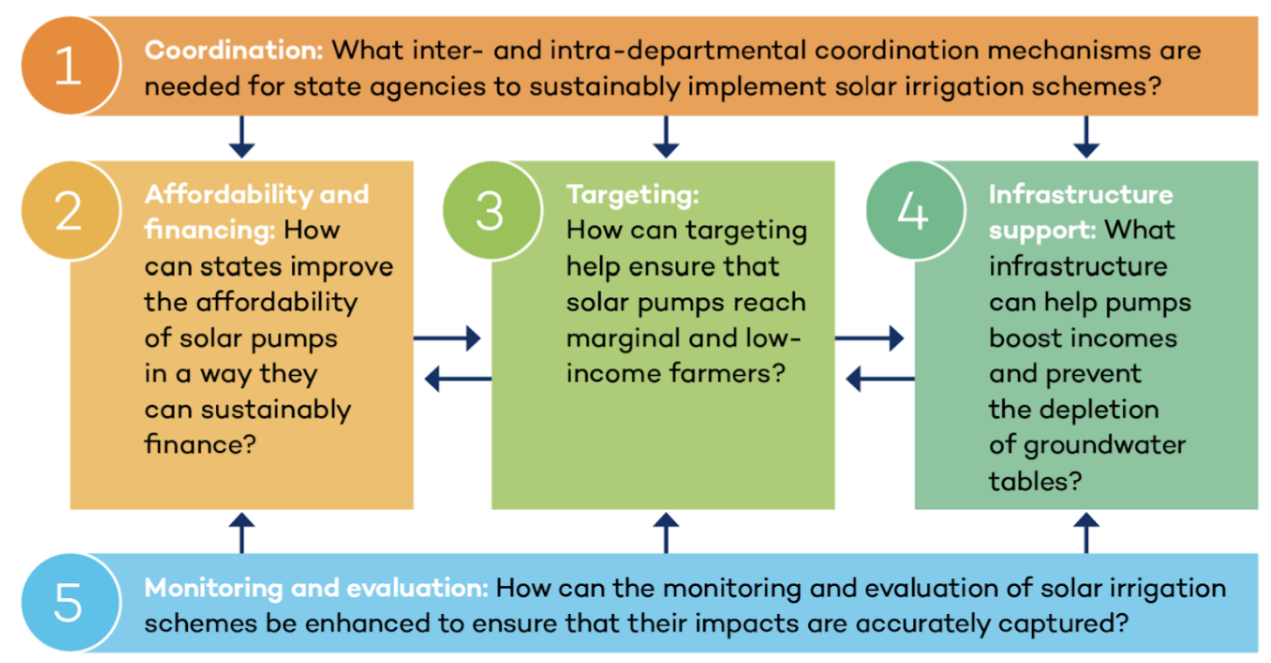
"Using solar pumps in agriculture can help India achieve its clean energy targets. But care must be taken to implement solar irrigation sustainably, given the complicated interconnections between water, energy and food."




